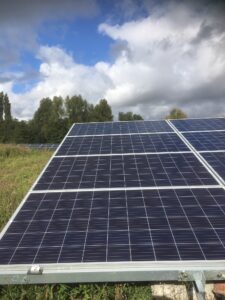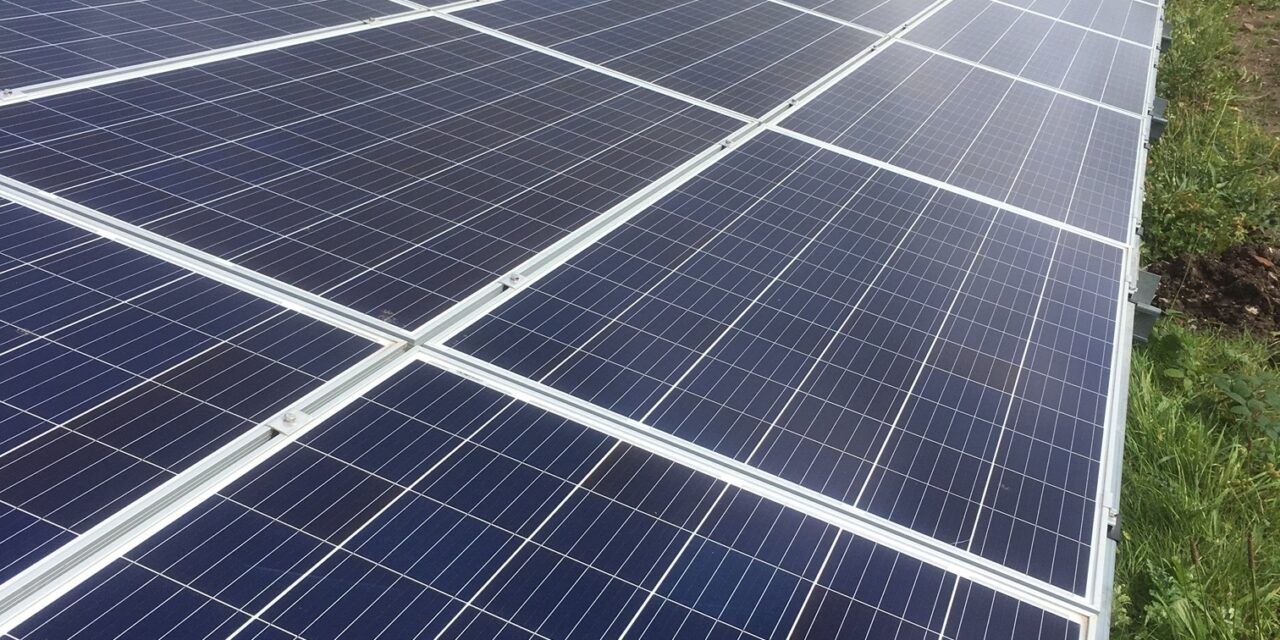
A new solar farm is now open on former derelict brownfield land in Widnes, producing renewable energy and saving money.
Halton Borough Council has completed construction of the one megawatt solar farm on part of the St Michael’s Golf Course site.
The solar farm has more than 3,000 panels and will generate approximately 850,000kwh of electricity a year. The farm is connected via a private wire to the DCBL Stadium Halton which will use approximately 45% of the energy generated, with the remainder exported to the grid.
Energy used at the stadium will help reduce the Council’s carbon footprint, saving around 120 tonnes of CO2 per year, and over 3,000 tonnes of CO2 over the lifetime of the project. In addition the electricity used at the stadium will help to reduce the venue’s energy bills.
The Council is considering the feasibility of extending the farm and connecting it to the new leisure centre which will be on Moor Lane.
Costing around £1.2 million, the project was part-funded from the European Regional Development Fund (ERDF) and the Council provided the remainder of the cost.
The farm was designed and built by Scottish company, Absolute Solar and Wind, and the Council was provided with technical, commercial and project management support from Horizon Power and Energy Ltd, based in Southampton.
Absolute is an independent family firm with ten years’ experience in renewable energy solutions, helping businesses and organisations to install contemporary low carbon technologies in solar, wind, biomass and energy efficiency solutions to reduce their energy consumption.
Horizon is an independent energy services business, based in Hampshire, delivering bespoke energy and low carbon solutions for large corporations, the public sector, developers, investors and land owners.
Cllr Stef Nelson, the Council’s portfolio holder for the Environment, says: “I am delighted that the solar farm is up and running and generating reusable energy for the stadium. This project is the latest in a number of renewable energy schemes previously implemented by the Council. It has enabled us to bring back into use a brownfield site, support our ongoing ambitions to reduce the Council’s carbon footprint and help to reduce the running costs of the stadium so we can redirect funding to frontline services.
“I’d like to thank our contractors, Absolute and Horizon, for their knowledge and expertise in bring this project to fruition.”
Ernie Shelton, Director at Horizon Power & Energy, said: “This project is a great illustration of how local authorities and businesses can use underutilized land to reduce their energy costs and carbon footprint.”
Tom Newall, from Absolute Solar and Wind, says: “We were proud to be a part of this challenging project and construct a Solar Farm on contaminated ground with a 2km high voltage private wire cable run through the public highway back to the stadium.”


